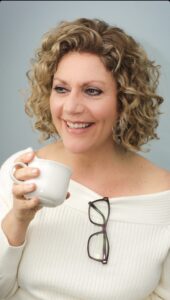This past summer was especially difficult. My Dad suffered a fall and was hospitalized for more than a month before transitioning to a rehab facility in August. Early Septemer saw him home again and requiring a new, heightened level of care.
As everyone around me in Connecticut was struggling with the summer’s often intense heat, persistent rain, and high humidity, I barely noticed the season and its discontents as I stressed about much different matters.
Everyone’s been there, I know.
We can all relate to those quiet moments when you’re living through a medical emergency and you pause to look out the window on a miserable day and think, “You know, if my Dad will be OK, if I knew everything would turn out OK, I wouldn’t grumble about the weather. I would welcome storms, sit by the window with a cup of tea, and cherish the rain.”
One thing has given me a sense of peace, and even hopefulness, throughout the ordeal – my tidy, uncluttered home.
That may sound like an uneven equation – balancing the weight of a serious medical issue against the ameliorative qualities of a tidy home – but it’s not really.
Instead of going from one type of stress to another as I transitioned from the hospital or rehab facility to home, I returned home to a place of soothing calm, a haven where I could exhale each day’s difficulties and anxieties.
The curative nature of comprehensive decluttering is the hallmark of the KonMari Method pioneered by Marie Kondo, which is a prescriptive for a malady that’s more prevalent than many realize.
According to “How Clutter Impacts Health,” a post on the website of Highland Hospital in West Virginia, roughly 55 percent of Americans find themselves stressed out by the clutter in their homes – and “one study found that women who perceived their homes as cluttered had heightened levels of cortisol, a stress hormone associated with chronic stress.”
Because clutter increases stress, the last thing someone dealing with an emergency situation needs is to go from that stressful situation into living spaces that don’t offer respite but instead elevate the stress to new levels.
A post on the website of a cognitive behavioral therapy provider in the UK sums up the issues nicely:
“Clutter and mess can be linked to negative emotions like confusion and tension. Whereas a clean and tidy home leads to positive emotions such as a sense of calm and well-being. By sorting and organising the clutter and mess around you, you can reduce any stress or anxiety you may be feeling and this will help you feel like you are taking control of your life. The physical activity of cleaning combined with the result of a cleaner home helps reduce stress, feelings of anxiety, and depressive symptoms. … .”
I’ll admit that simply walking in the door of my home after visiting Dad in the hospital or rehab center didn’t magically wash away my fears and anxieties. But after showering, changing, making a cup of my special relaxing tea, and settling into a comfortable chair, I always felt calmer and better.
A clean, tidy, uncluttered environment is not only soothing but also empowering. If I can liberate and improve my lifestyle through decluttering, then I can overcome other challenges that come my way. That’s the takeaway.
The key to converting your home into this type of inspiring haven is the KonMari Method of tidying and decluttering.
KonMari involves a category-by-category journey in which you confront and assess the true value of everything spilling out of your closets, kitchen cabinets, bathroom drawers, and everywhere else in the house.
Whatever “sparks joy” for the life and lifestyle you aspire to have – and that’s our inspiration – gets to stay and reside neatly in its designated “home” within the house.
Whatever you have that isn’t essential gets thanked for its service and sent on its way.
It’s a rigorous process and often an emotional one, too, that many people need professional help with in order to provide lasting results and benefits.
As a Certified Platinum KonMari Consultant, I’m here to help. Feel free to email me at christine@sageofinteriorsllc.com or call (203) 772-8883 to discuss your situation—or visit my Packages & Rates page.
Follow me on Facebook and on Instagram as the Sage of Interiors, as well as Dr. Christine Thorn on Facebook.
